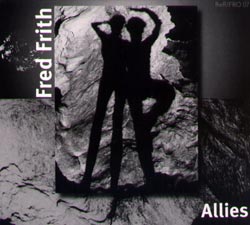
Out of Stock
Quantity in Basket: None
Log In to use our Wish List
Shipping Weight: 4.00 units
Sample The Album:
Fred Frith-bass, guitar, violin, keyboards, drum machine, tape manipulations
Joey Baron-drums
George Cartwright-alto sax
Tom Cora-cello
Engineered by Martin Bisi
Click an artist name above to see in-stock items for that artist.
UPC: 752725900928
Label: Recommended Records
Catalog ID: ReR FRO07
Squidco Product Code: 4426
Format: CD
Condition: New
Released: 2004
Country: Great Britain
Packaging: Digipack
Recorded at BC Studios, Brooklyn in October 1989. Revised and remixed at the Fabrik, Munich in 1995
Artist Biographies
• Show Bio for Fred Frith "Though the point of reference for many remains the iconic band Henry Cow, which he co-founded in 1968 and which broke up more than 30 years ago, Fred Frith has never really stood still for an instant. In bands such as Art Bears, Massacre, Skeleton Crew, Keep the Dog, Tense Serenity, the Fred Frith Guitar Quartet, Eye to Ear, and most recently Cosa Brava, he has always held true to his roots in rock and folk music, while exploring influences that range from the literary works of Eduardo Galeano to the art installations of Cornelia Parker. The release of the seminal Guitar Solos in 1974 enabled him to simultaneously carve out a place for himself in the international improvised music scene, not only as an acclaimed solo performer but in the company of artists as diverse as Han Bennink, Chris Cutler, Jean-Pierre Drouet, Evelyn Glennie, Ikue Mori, Louis Sclavis, Stevie Wishart, Wu Fei, Camel Zekri, John Zorn, and scores of others. He has also developed a personal compositional language in works written for Arditti Quartet, Asko Ensemble, Bang on a Can All-Stars, Ensemble Modern, Concerto Köln, and ROVA Sax Quartet, for example. Fred has been active as a composer for dance since the early 1980s, working with choreographers Bebe Miller, François Verret, and especially long-time collaborator and friend Amanda Miller, with whom he has created a compelling body of work over the last twenty years. His film soundtracks (for award-winning films like Thomas Riedelsheimer's Rivers and Tides and Touch the Sound, Peter Mettler's Gambling, Gods, and LSD, and Deborah Kaufman and Alan Snitow's Thirst, to name a few) won him a lifetime achievement award from Prague's "Music on Film, Film on Music" Festival (MOFFOM) in 2007. The following year he received Italy's Demetrio Stratos Prize (previously given to Diamanda Galas and Meredith Monk) for his life's work in experimental music, and in 2010 was awarded an honorary doctorate from the University of Huddersfield in his home county of Yorkshire. Fred currently teaches in the Music Department at Mills College in Oakland, California (renowned for over fifty years as the epicenter of the American experimental tradition), and in the Musik Akademie in Basel, Switzerland." ^ Hide Bio for Fred Frith • Show Bio for Joey Baron "Bernard Joseph Baron (born June 26, 1955 in Richmond, Virginia) is an American avant-garde jazz drummer who plays frequently with Bill Frisell and John Zorn. Baron was born on June 26, 1955, in Richmond Virginia. When he was nine, he taught himself how to play the drums. As a teenager, he played in rock bands and dixieland jazz groups. After high school, he spent a year at the Berklee College of Music. He moved to Los Angeles in the early 1970s and embarked on a professional career, playing with Carmen McRae and Al Jarreau. He worked as a freelance drummer and session musician with Chet Baker, Stan Getz, Dizzy Gillespie, and Hampton Hawes. In 1982 he moved to New York City and joined guitarist Bill Frisell, with whom he would play often throughout his career. He also played in groups with Red Rodney, Fred Hersch, Enrico Pieranunzi, and Marc Johnson. Starting in the late 1980s, he became a bigger part of the avant-garde jazz scene when he played regularly at the Knitting Factory, recorded with singer Laurie Anderson, and began a long association with John Zorn. For several years he participated in Zorn's projects Naked City and Masada. Baron contributed to David Bowie's Outside (1995). Bowie would later praise Baron, stating: "Metronomes shake in fear, he's so steady." " ^ Hide Bio for Joey Baron • Show Bio for George Cartwright "George Cartwright is a Minnesota-based composer, performer, bandleader, producer and musical collaborator, with a prolific career spanning over 30 years. His career began in his home state of Mississippi, shaped by a childhood woven through with early memories of singing in church and learning songs at his grandfather's knee. He grew up on rock-n-roll and fell in love with jazz after hearing Charles Lloyd's iconic "Forest Flower," and like the British bands that he listened to in high school, he was also heavily influenced by the blues being played literally in his own backyard of the Mississippi Delta. Musical instrument exploration naturally followed, beginning with piano lessons and later guitar, learning to play by ear. During this phase, George began his initial foray into composing, writing lyrical pieces, as well as instrumental pieces in the manner of Mississippi John Hurt and John Fahey. He bought his first sax on his 2 birthday from a secondhand thrift store for $65-a gift from his grandmother. Irresistibly drawn to the beauty and passion of jazz saxophone - not to mention experiencing a musical epiphany after hearing Ornette Coleman's "Dancing in Your Head" - George began to purposefully channel his energy into composing. Post-college, he studied at the Creative Music Studio in Woodstock, NY, where he was exposed to the music and concepts of Dave Holland, Anthony Braxton, Karl Berger, Frederic Rzewski, Kalaparusha, Ursula Oppens, Leo Smith, Oliver Lake, and many other major jazz innovators of the time. The late 70's involved a move to New York City, where George formed a trio with Michael Lytle and David Moss, known as Meltable Snaps It, performing at such venues as The Kitchen, The Franklin Furnace, Phil Niblock's Experimental Intermedia Foundation, and Inroads. In 1979, he also formed his band Curlew with bassist Bill Laswell, which went on to record 12 CDs and LPs under the Cuneiform Records label, among others. The band included such notables as Tom Cora, Fred Frith, Wayne Horwitz, Davey Williams and Ann Rupel, and performed at high-profile jazz festivals and venues in North America and Europe. In 1993, George returned to his Southern roots, relocating to Memphis, Tennessee. Over the next six years, he continued to collaborate with fellow musicians, compose, perform and produce recordings with Curlew. During this time, he also produced a solo CD 'The Memphis Years". George moved to his current home base in the Twin Cities in 1999, where he found a tremendous wealth of like-minded musicians, with whom he continues to collaborate and record to this day. George has worked with a wide range of artists both domestically and abroad. In addition to composing, George continues to perform locally in the Twin Cities. Performances include The Cedar Cultural Center, numerous events at The Walker Art Center, Studio Z, The Black Dog. Jazz Central and others." ^ Hide Bio for George Cartwright • Show Bio for Tom Cora "Thomas Henry Corra (September 14, 1953 - April 9, 1998), better known as Tom Cora, was an American cellist and composer, best known for his improvisational performances in the field of experimental jazz and rock. He recorded with John Zorn, Butch Morris, and The Ex, and was a member of Curlew, Third Person and Skeleton Crew. Tom Cora was born in Yancey Mills, Virginia, United States. He made his musical debut as drummer on a local television program and in the mid-1970s he played guitar for a Washington, D.C. jazz club house band. He took up the cello while an undergraduate at the University of Virginia and studied with cellist Pablo Casals' student Luis Garcia-Renart and later with vibraphonist Karl Berger. During this time he formed his own group, The Moose Skowron Tuned Metal Ensemble and began constructing instruments for it. In 1979 Cora moved to New York City where he worked with Shockabilly guitarist Eugene Chadbourne, introducing the cello to the honky tonk circuits of North America. He performed at improvising clubs and venues in New York with John Zorn, Fred Frith, Andrea Centazzo, Butch Morris, Wayne Horvitz, David Moss, Toshinori Kondo and others. Cora also collaborated with George Cartwright and Bill Laswell which led to the formation of the art rock band Curlew in 1979 . Cora remained with Curlew for over ten years and appeared on five of their albums. In 1982 Tom Cora and Fred Frith formed Skeleton Crew, an improvising rock and jazz band best known for their live performances where they played various instruments simultaneously. Cora and Frith were each one-man bands on stage and for their act, Cora constructed musical contraptions he could play with his feet. The band existed for five years during which time they toured Europe, North America and Japan extensively. They made two studio albums, Learn to Talk (1984) and The Country of Blinds (1986), the latter with Zeena Parkins who had joined the band in 1984. In October 1983 Skeleton Crew joined Duck and Cover, a commission from the Berlin Jazz Festival, for a performance in West Berlin, followed by another in February 1984 in East Berlin. Cora was also a member of the improvising trio Third Person, formed in 1990 as a live collaboration with percussionist Samm Bennett and a "third person" who changed from concert to concert. Two CDs of some of their performances were released, The Bends in 1991 (with "third persons" Don Byron, George Cartwright, Chris Cochrane, Nic Collins, Catherine Jauniaux, Myra Melford, Zeena Parkins, and Marc Ribot) and Luck Water in 1995 (with "third person" Kazutoki Umezu). Cora performed with a number of other bands, including Nimal with Momo Rossel and post-rock quartet Roof. In 1990, he played two concerts with Dutch anarcho-punk band, The Ex, and the success of this collaboration resulted in Cora performing hundreds of concerts with The Ex and appearing on two of their CDs. In 1995 in The Netherlands, Cora and Frith collaborated, as Skeleton Crew, on Etymology, a CD-ROM sound sample library of sonic sounds and wire manipulations. Tom Cora died of malignant melanoma at the age of 44 in a hospital in the south of France, where he lived with his wife, singer Catherine Jauniaux, and their son, Elia Corra." ^ Hide Bio for Tom Cora
7/1/2025
Have a better biography or biography source? Please Contact Us so that we can update this biography.
7/1/2025
Have a better biography or biography source? Please Contact Us so that we can update this biography.
7/1/2025
Have a better biography or biography source? Please Contact Us so that we can update this biography.
7/1/2025
Have a better biography or biography source? Please Contact Us so that we can update this biography.
Track Listing:
Fred Frith-bass, guitar, violin, keyboards, drum machine, tape manipulations
Joey Baron-drums
George Cartwright-alto sax
Tom Cora-cello
Engineered by Martin Bisi
Quintet Recordings
Before April-2006
Recommended Records
Frith, Fred
Compositional Forms
NY Downtown & Metropolitan Jazz/Improv
Cora, Tom
Quintet Recordings
Before April-2006
Search for other titles on the label:
Recommended Records.



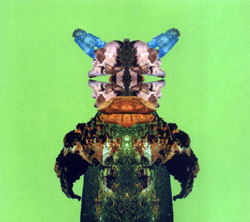
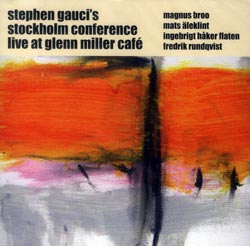
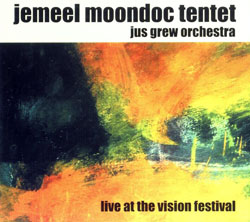
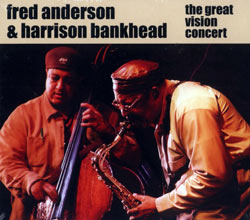
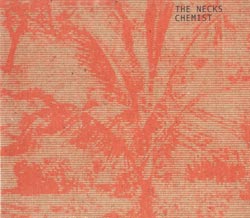
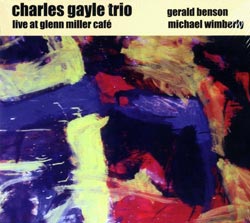
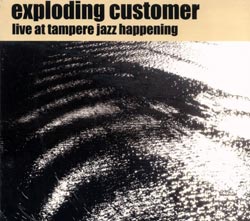
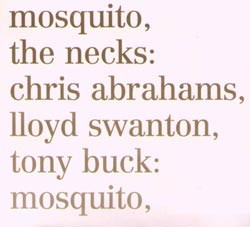
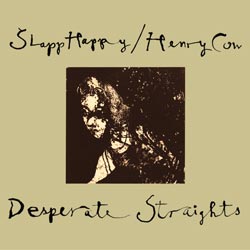

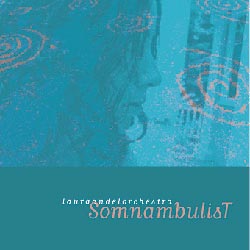
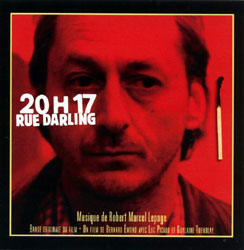
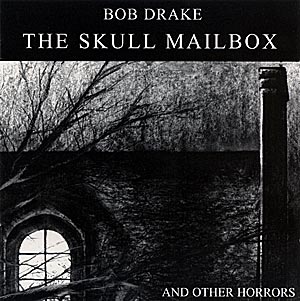


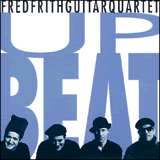
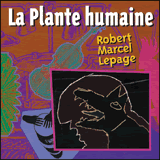

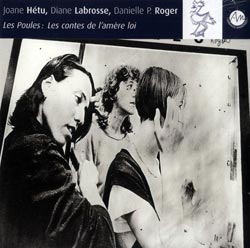










![Deupree, Jerome / Sylvie Courvoisier / Lester St. Louis / Joe Morris: Canyon [2 CDs]](https://www.teuthida.com/productImages/misc4/36404.jpg)


![Eternities: Rides Again [CASSETTE]](https://www.teuthida.com/productImages/misc4/36247.jpg)

![Lopez, Francisco: Untitled (2021-2022) [2 CDs]](https://www.teuthida.com/productImages/misc4/36438.jpg)




![Eventless Plot | Haarvol: The Subliminal Paths [CASSETTE + DOWNLOAD]](https://www.teuthida.com/productImages/misc4/36232.jpg)












![Eventless Plot | Francesco Covarino: Methexis [CASSETTE + DOWNLOAD]](https://www.teuthida.com/productImages/misc4/36231.jpg)



![Das B (Mazen Kerbaj / Mike Majkowski / Magda Mayas / Tony Buck): Love [VINYL]](https://www.teuthida.com/productImages/misc4/36329.jpg)



![Hemphill Stringtet, The: Plays the Music of Julius Hemphill [VINYL]](https://www.teuthida.com/productImages/misc4/36409.jpg)



![Halvorson, Mary Septet: Illusionary Sea [2 LPS]](https://www.teuthida.com/productImages/misc4/17952.jpg)






![Money : Money 2 [2 CDs]](https://www.teuthida.com/productImages/misc4/35894.jpg)




![Klinga, Erik: Elusive Shimmer [VINYL]](https://www.teuthida.com/productImages/misc4/36258.jpg)
![CHANGES TO blind (Phil Zampino): Volume 9 - I Wave on a Fine Vile Mist [CD + DOWNLOAD]](https://www.teuthida.com/productImages/misc4/36061.jpg)

![Wallmart / Rubbish: Asset Protection [split CD]](https://www.teuthida.com/productImages/misc4/35900.jpg)


![+Dog+: The Family Music Book Vol. 5 [2 CDs]](https://www.teuthida.com/productImages/misc4/35897.jpg)
![Kuvveti, Deli : Kuslar Soyledi [CASSETTE w/ DOWNLOAD]](https://www.teuthida.com/productImages/misc4/36107.jpg)

![Nakayama, Tetsuya: Edo Wan [CASSETTE w/ DOWNLOAD]](https://www.teuthida.com/productImages/misc4/36105.jpg)




![Yiyuan, Liang / Li Daiguo: Sonic Talismans [VINYL]](https://www.teuthida.com/productImages/misc4/35957.jpg)
![Brown, Dan / Dan Reynolds: Live At The Grange Hall [unauthorized][CASSETTE]](https://www.teuthida.com/productImages/misc4/36245.jpg)








![Palestine, Charlemagne / Seppe Gebruers: Beyondddddd The Notessssss [VINYL]](https://www.teuthida.com/productImages/misc4/36206.jpg)
![Palestine, Charlemagne / Seppe Gebruers: Beyondddddd The Notessssss [NEON GREEN VINYL]](https://www.teuthida.com/productImages/misc4/36207.jpg)

![Laubrock, Ingrid: Purposing The Air [2 CDs]](https://www.teuthida.com/productImages/misc4/35639.jpg)

![Yoko, Ono / The Great Learning Orchestra: Selected Recordings From Grapefruit [2 CDs]](https://www.teuthida.com/productImages/misc4/35841.jpg)









![Zorn, John / JACK Quartet: The Complete String Quartets [2 CDs]](https://www.teuthida.com/productImages/misc4/35609.jpg)

![Lonsdale, Eden: Dawnings [2 CDs]](https://www.teuthida.com/productImages/misc4/35480.jpg)



![Sorry For Laughing (G. Whitlow / M. Bates / Dave-Id / E. Ka-Spel): Rain Flowers [2 CDS]](https://www.teuthida.com/productImages/misc4/35985.jpg)

![Rolando, Tommaso / Andy Moor : Biscotti [CASSETTE w/ DOWNLOADS]](https://www.teuthida.com/productImages/misc4/36106.jpg)


![Electric Bird Noise / Derek Roddy: 8-10-22 [CD EP]](https://www.teuthida.com/productImages/misc4/35970.jpg)








![Elephant9 : Mythical River [VINYL]](https://www.teuthida.com/productImages/misc4/34624.jpg)



![Elephant9 with Terje Rypdal: Catching Fire [VINYL 2 LPs]](https://www.teuthida.com/productImages/misc4/35355.jpg)
![Deerlady (Obomsawin, Mali / Magdalena Abrego): Greatest Hits [VINYL]](https://www.teuthida.com/productImages/misc4/34876.jpg)







![Surplus 1980: Illusion of Consistency [CD]](https://www.teuthida.com/productImages/misc4/35069.jpg)
![Staiano, Moe: Away Towards the Light [VINYL + DOWNLOAD]](https://www.teuthida.com/productImages/misc4/35037.jpg)
![Coley, Byron: Dating Tips for Touring Bands [VINYL]](https://www.teuthida.com/productImages/misc4/17906.jpg)

![Lost Kisses: My Life is Sad & Funny [DVD]](https://www.teuthida.com/productImages/misc4/lostKissesDVD.jpg)